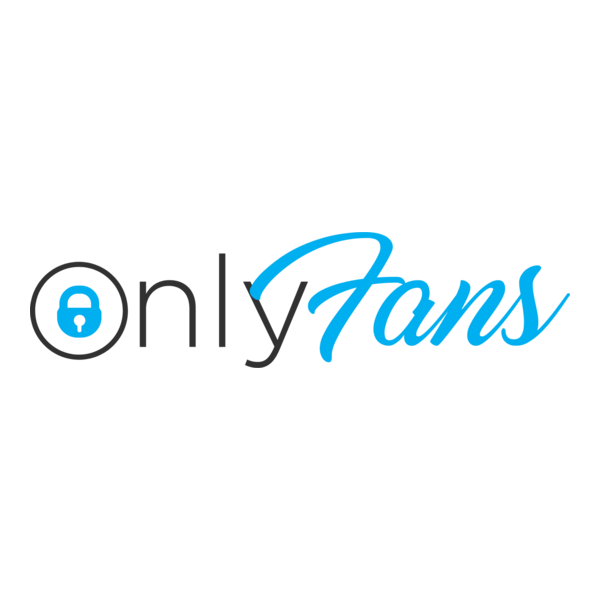
Unveiling The Onlyfans Leak: Privacy, Ethics, And What You Should Know - Fresh Celebrity News 2025

Breaking Down the OnlyFans Leak: What’s the Buzz?
Hey there, digital darlings! If you’ve been scrolling through the internet lately, you’ve likely stumbled across whispers of the OnlyFans leak - a scandal that’s got everyone talking about privacy and consent. For the uninitiated, OnlyFans is that spicy subscription platform where creators, often in the adult content realm, share exclusive goodies with their paying fans. But when private content gets exposed without permission, it’s a whole different kind of exposure.
This leak isn’t just a tech glitch; it’s a full-blown crisis of digital rights, intellectual property theft, and online harassment. We’re here to unpack the drama, from how it went down to what it means for creators and fans alike. So, buckle up - we’re diving deep into the wild world of cybersecurity and ethics!
With concerns about online safety skyrocketing, understanding this mess is more important than ever. Let’s get to the heart of what happened and why it’s a big deal for anyone who values their digital privacy.

How Did the OnlyFans Leak Even Happen?
Alright, let’s get into the nitty-gritty of how this scandal unfolded. The OnlyFans leak isn’t a single event but a series of incidents falling into two steamy categories. First up, we’ve got mass content dumps - think huge collections of photos and videos from multiple creators being shared illegally. No, the platform itself wasn’t hacked, but sneaky subscribers or users snagged content through screen recordings or downloads and spread it like wildfire across forums and the dark web.
Then there are the targeted hacks - personal attacks on individual creators through weak passwords or phishing scams, often exploiting linked third-party apps. Despite the rumors, OnlyFans has made it clear that their systems weren’t breached. Most of these leaks happened because content left the platform through shady subscribers or crafty cybercriminals.
It’s a stark reminder that even the most locked-down platforms can’t control what happens once content is in someone’s hands. So, how are creators holding up amidst this chaos? Let’s find out.
The Real Impact: How Creators Are Coping
For the talented folks behind OnlyFans content, this leak is more than an inconvenience - it’s a personal and professional nightmare. Imagine pouring your heart into exclusive content, only to see it leaked for free, slashing your subscriber count and income overnight. That loss of revenue is just the start of the heartbreak.
Emotionally, many creators feel utterly violated, grappling with anxiety as their private work circulates without consent. For those keeping their identities under wraps, a leak can blow their anonymity, risking personal and career damage. And don’t get us started on the legal mess - chasing down leaked content across international platforms or dark web corners is like finding a needle in a haystack.
“It’s like having your diary ripped open for the world to see - you feel exposed and powerless,” shared an anonymous OnlyFans creator, echoing the sentiments of many affected by the breach.
Ethics on the Line: More Than Just a Leak
Let’s talk ethics, because this isn’t just about stolen data - it’s about broken trust. Every piece of OnlyFans content comes with an unspoken pact between creator and subscriber. When that’s violated by a leak, it’s not only illegal; it’s downright wrong. Some even liken it to digital theft or revenge porn, especially when content is used to shame or harm creators.
As fans or casual browsers, engaging with leaked content keeps this cycle of exploitation alive. It’s a wake-up call to think twice before clicking or sharing - would you want your private moments splashed across the internet? Let’s keep the vibe respectful and remember that consent isn’t just a buzzword; it’s everything.
This scandal raises big questions about digital morality. How do we balance curiosity with respect for privacy in an age where everything’s just a click away?
Legal Shields and Digital Rights: What’s in Place?
For creators caught in the crossfire, there are legal protections, though enforcing them is often a hot mess. Most OnlyFans content is protected by copyright law, making unauthorized sharing a clear no-no. In some areas, distributing explicit material without consent even falls under revenge porn laws - no romantic drama required.
OnlyFans steps in with DMCA takedown services to scrub stolen content, but the speed and success of these efforts can be hit or miss. If hackers are involved, cybersecurity laws might apply, though they often demand hefty evidence and law enforcement muscle. It’s a complex web, and creators often feel stuck navigating it alone.
Knowing your rights is half the battle, but the real challenge is making those rights stick in a borderless digital landscape. So, what can creators do to shield themselves from future leaks?
Protect Yourself: Tips for Creators to Stay Safe
Hey, creators, let’s talk safety - because you deserve to feel secure while sharing your magic. Start with strong, unique passwords and never reuse them across sites; a password manager is your new best friend. Enable two-factor authentication (2FA) for that extra layer of protection - it’s a game-changer.
Consider watermarking your content with subtle identifiers to trace leaks back to the source. Steer clear of linking third-party apps that might be vulnerable, and keep an eye on the web with services that scan for unauthorized use of your work. These steps won’t stop every risk, but they’ll make you a tougher target.
Remember, protecting your content is also about protecting your peace of mind. Stay proactive, and don’t hesitate to seek support if you feel overwhelmed by the digital jungle.
Platforms, Step Up: What OnlyFans Can Do Better
While creators tighten their defenses, platforms like OnlyFans need to bring their A-game too. Stronger encryption could safeguard data during transit and storage, while AI monitoring might catch weird download or screen-capture antics before they spiral. How about rapid DMCA takedown tools with real legal teeth?
Offering regular cybersecurity training for creators could also be a game-changer, empowering them with the know-how to stay safe. Platforms aren’t just hosts - they’re partners in this creator economy. Stepping up security isn’t just nice; it’s non-negotiable.
The ball’s in their court to build trust and show they’ve got creators’ backs. But what about us, the viewers and fans? Let’s chat about our role in this drama.
For Fans and Viewers: Play It Cool and Ethical
Listen up, fans - if you stumble across leaked OnlyFans content, don’t be that person who shares or downloads it. Not only does it harm creators, but it could also land you in legal hot water. Instead, report the leak to the creator or platform and keep the ethical high ground.
Think about it: would you want your private stuff out there for the world to see? Supporting creators means respecting their work and boundaries. Let’s keep the digital space a place of mutual respect, not exploitation.
Your actions matter. Choosing to stand by creators instead of fueling the leak cycle can make a real difference in how safe this community feels for everyone.
Digital Consent: The Heart of Modern Content
Digital consent isn’t just a boring legal term - it’s the foundation of trust between creators and viewers. When that trust is shattered by leaks, the whole creator economy takes a hit. The OnlyFans saga shines a spotlight on how fragile that bond can be in our hyper-connected world.
It begs some spicy questions: Should platforms enforce stricter digital rights? Could AI help track and stop leaked content in its tracks? And how can laws catch up with these fast-evolving crimes? The conversation is just getting started.
As we navigate this new frontier, one thing’s clear - consent, whether physical or digital, is sacred. Let’s champion a space where trust isn’t just an option but a guarantee.
Looking Ahead: Privacy-First Platforms and Cultural Shifts
In the wake of leaks like this, the future of content creation is getting a glow-up with privacy-first platforms. Think decentralized, blockchain-based setups giving creators ultimate control, or end-to-end encrypted sharing so only subscribers get the goods. Self-destructing media that vanishes after viewing? Yes, please!
Creators are demanding tools that prioritize safety and transparency, and they’re not wrong to push for it. Meanwhile, a cultural shift is brewing - privacy isn’t a luxury anymore; it’s a must. Consent is just as crucial online as offline, and creators are reclaiming their spaces with tech and tight-knit communities.
As media literacy grows, let’s hope public behavior shifts too. Leaked content isn’t gossip or entertainment - it’s exploitation. Together, we can build a digital world where creators thrive, privacy reigns, and respect is the name of the game.

Popular
Trending topics









